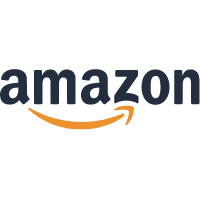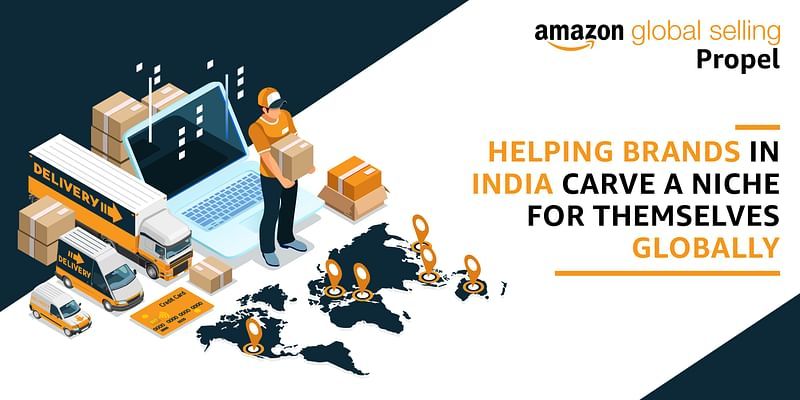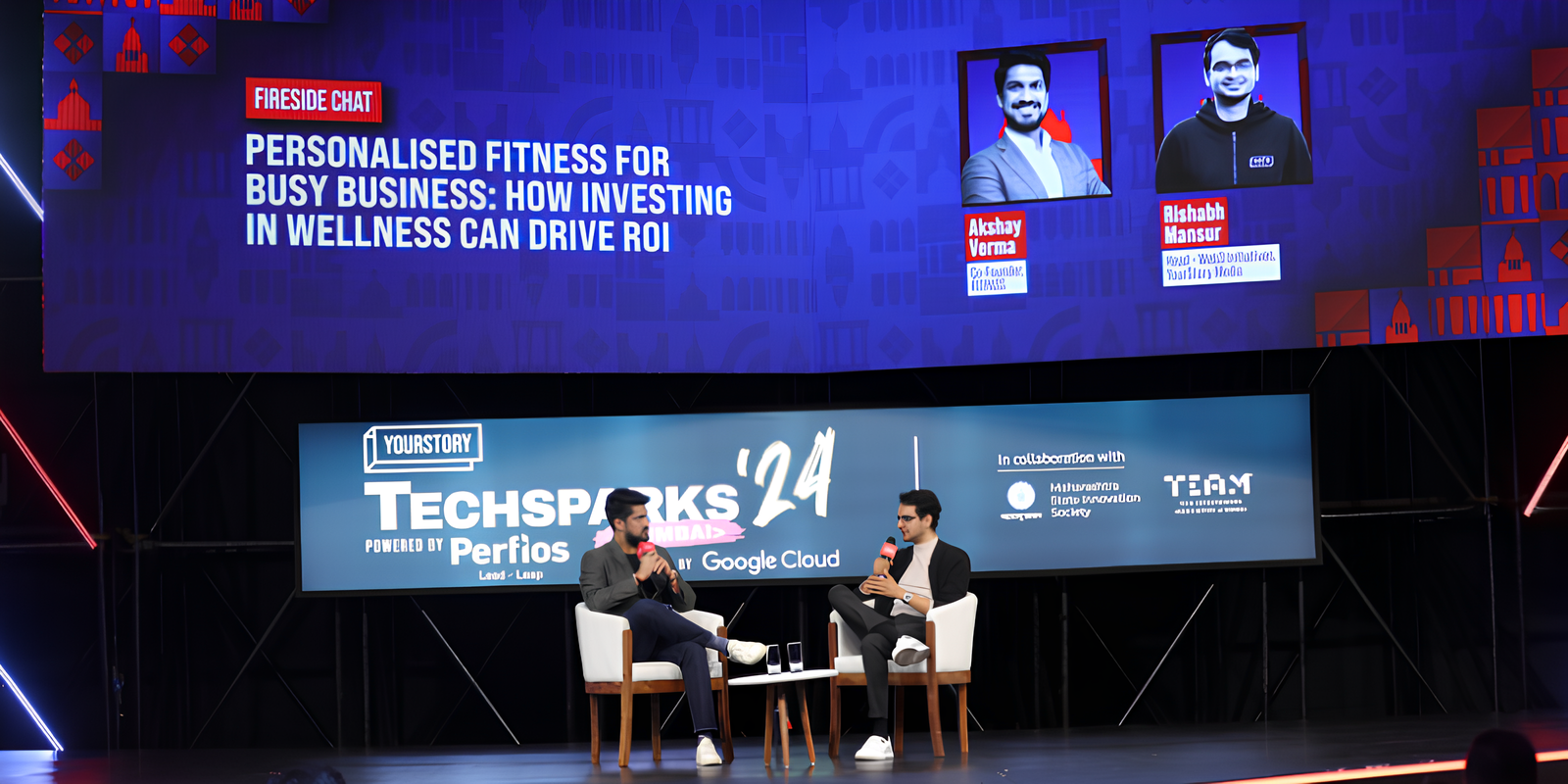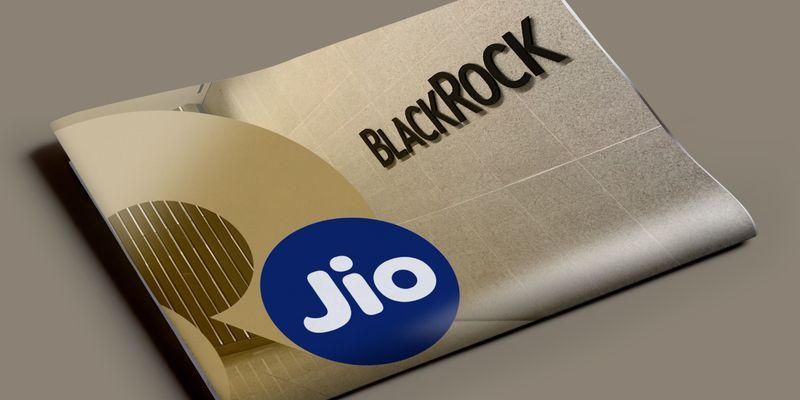
Amazon Global Selling Propel
View Brand PublisherHow e-commerce is empowering Indian brands to explore international markets
With over 70,000 exporters associated with the programme, Amazon Global Selling is helping brands in India carve a niche for themselves globally with their unique products, said Abhijit Kamra, Director - Global Trade, Amazon India while speaking during a panel discussion hosted by YourStory.
The discussion ‘Boosting exports: E-commerce is blurring the boundaries between local and global’ shed light on how e-commerce players like Amazon are helping local brands get global visibility and boosting exports with the assistance of their industry partners.
The discussion also featured Sandeep Juneja, VP, Sales and Marketing, DHL Express, Sabina Dewan - Founder and Executive Director, JustJobs Network and Nimisha Dhanda - Co-Founder, D'Moksha Homes as speakers.
Here are some of the key highlights of the discussion:
Divided by geographies, united by Amazon
Abhijit stressed on how technology and e-commerce have been connecting supply and demand, irrespective of the geographical separation between buyers and sellers in the country, over the last decade.
He said that Amazon Global Selling was launched over five years ago with the thought of delivering quality products produced by Indian brands to buyers across the world.
Touching on how the enterprises associated with the program have cumulatively crossed $3 billion in e-commerce exports, Abhijit said, “It took us about three years to enable the first billion dollars in exports, the second billion took 18 months and the last billion dollars has only taken 12 months. We are focused on our pledge of enabling $10 billion in e-commerce exports from India by 2025.”
Mismatch in global demand and supply due to COVID-19
Describing COVID-19 as the 'mother of all disruptions', DHL Express' Sandeep Juneja said that while the global consumer demand fell by 25-30 percent on an average, the global supply declined by 40-50 percent when the pandemic struck in 2020.
“The mismatch put a lot of pressure on organisations like ours. The pandemic necessitated that our processes be re-engineered because of social distancing, and facilities be scaled up due to the huge volume of demand. However, we managed to come out of the crisis prouder and more digitised. In the DHL Express division, we clocked €19 billion in revenues globally," he explained.
How an online presence helped brands pass the pandemic test
Abhijit noted that during the pandemic, exporters who had the exposure to online channels were able to hedge their businesses as they had customers in multiple markets. "Because of this, nine out of 10 exporters who worked with us said they were able to pay their workforce throughout the pandemic," said Abhijit. He added that consumer demand across categories like health and nutrition, and other items that one needs at home, like toys, has grown in the last 12-18 months.
Powering through a crisis with grit and Amazon
It was while doing the decor of their new house that Nimisha and Manav Dhanda realised the lack of sustainable home linen brands in the Indian market. Noticing a potential business opportunity, the couple launched their sustainable luxury home linen brand D'Moksha Homes in 2020.
Nimisha, who was one of the panelists, said that soon after the brand was launched they had to face several challenges due to the COVID-19 crisis and the subsequent lockdown. However, with Amazon’s help, they were able to tide through the crisis and even clock a small profit.
"When you launch operations, there are too many things to take care of. You have to figure out how you will export, shipping and logistics partners, and how you will manage returns. All these tasks are manageable with a single dashboard on Amazon and at a very viable cost,” she added.
Building an ecosystem for exporters and MSMEs
Abhijit said that his team was trying to create an ecosystem, so that brands have to focus only on creating quality products. "All the other heavy-lifting like ensuring market access, market intelligence, cross-border remittances, supply chain fulfillment and compliances should be taken care of by either us or our partners," he added.
He pointed out that Indian exporters could even use Amazon's fulfillment centres set up in various countries. “For example, brands can use our warehouses in the US to ship their products to customers. With our industry partners, we move goods to our warehouses and from there we can ship these orders to the customer in less than a day.”
E-commerce not a panacea for employment challenges
Sabina Dewan said that 48 percent of the Indian workforce is self-employed, but not all self-employment is entrepreneurship. "Many of our self-employed workers are just survivalists who are making ends meet."
"E-commerce and all other forms of online work have emerged as an alternative to fulfilling consumer demand during the crisis, but they are not a panacea for all the employment challenges that are confronting our country," she added.
For more information, visit Amazon Global Selling Propel











